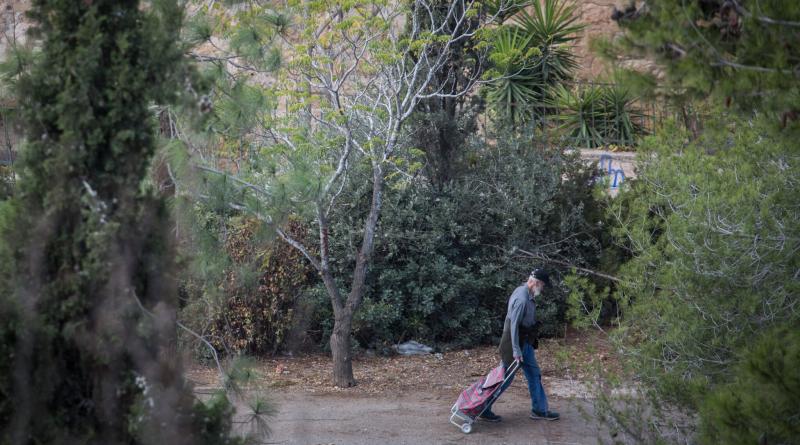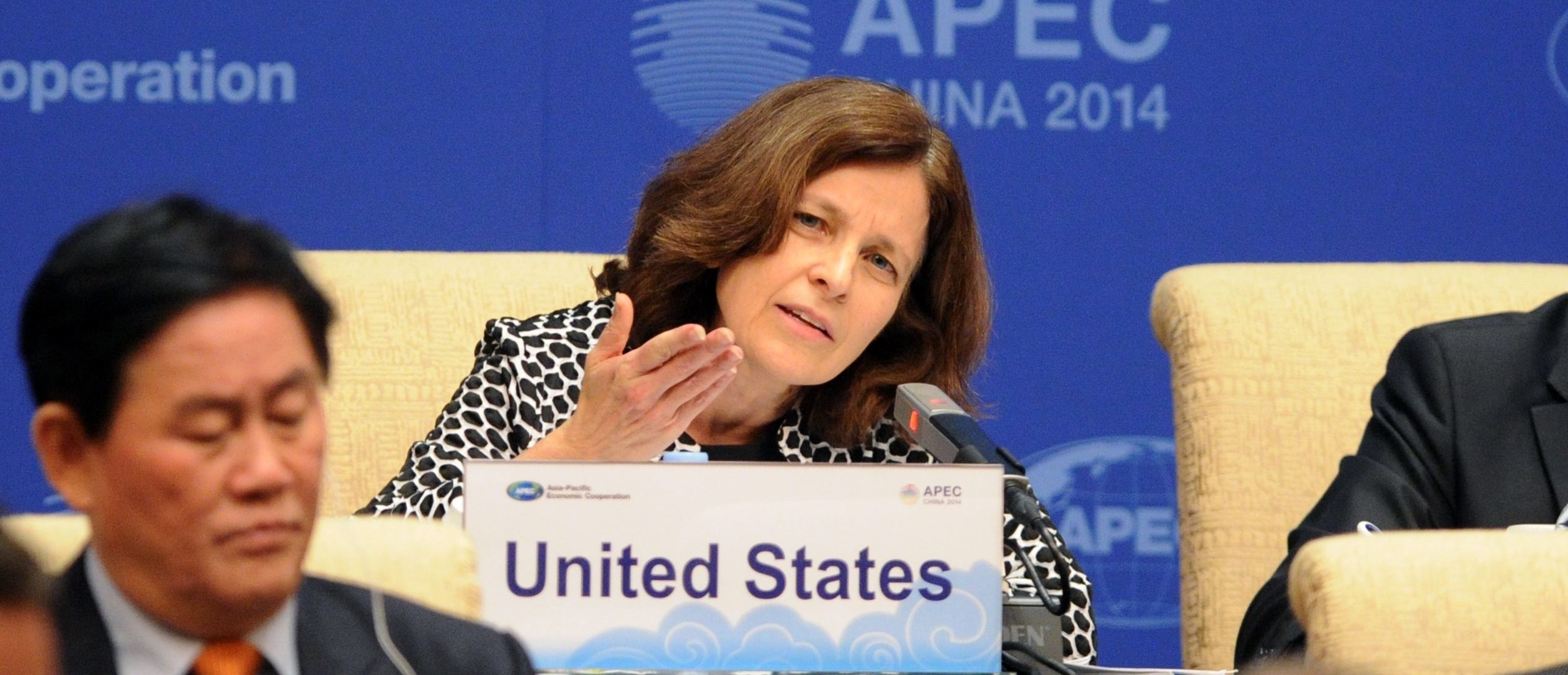By
Graham Kates
/ CBS News
David Pecker on “catch and kill” process
David Pecker testifies on Trump news “catch and kill” process
12:35
Everyone but the judge and jurors are seated before Donald Trump and his team enter the courtroom each day in his New York criminal trial.
Reporters and other members of the public have passed through two layers of screening. They, prosecutors and Manhattan District Attorney Alvin Bragg himself, are all in place, and quiet, as Trump approaches the room.
The group is sometimes settled in before Trump’s motorcade has even pulled up to the 17-story Art Deco-style building. The court officers’ radios suddenly crackle, echoing off the high, 83-year-old ceilings, announcing the arrival of a former president.

Curtis Means-Pool / Getty Images
Reporters are reminded that they will be removed from the room if a court officer sees their phones. They continue to clatter away on their laptops, a glowing sea of screens showing notes, Gmail, Slack and Twitter.
Sometimes, Trump can be heard before he enters the room. A ring announcer ready to rumble in his own prize fight. He’s addressing cameras and a few reporters stationed in a small pen about 50 feet from the courtroom. The unmistakable voice of one of the world’s most famous people, muffled through two sets of doors, reverberates.
Outside the room, Trump rages about Bragg, Judge Juan Merchan and the case. The former president is being tried on 34 felony counts of falsifying business records related to an alleged “hush money” payment before the 2016 presidential election. He denies the allegations and has entered a not guilty plea.
Once Trump walks through the thick wooden double doors — sometimes setting a brisk pace, sometimes lumbering, always stone-faced — his demeanor changes. He’s accompanied by a team of lawyers, usually campaign staff, too, and of course Secret Service agents, who move to the perimeter after Trump takes a seat at the defense table.
Inside the room, he’s reserved, quiet. Sometimes he appears to briefly nod off. He occasionally whispers with attorneys Todd Blanche, Susan Necheles and Emil Bove.
He stands at attention when Merchan enters, and like everyone else, sits only when told he may.
During jury selection, he sometimes craned his neck to the right to watch New Yorkers in the jury pool as they were questioned about their social media habits and feelings about Trump. He afforded Blanche the same attention during his opening statement Tuesday.
Mostly, Trump stares straight ahead. At what, exactly? The computer monitor he shares with the attorney next to him? Certainly, sometimes. But he seems to be looking above that, beyond it, past the bustling judge’s clerk, whose desk gives him a front row seat second only to Merchan’s. Is he staring at the wall? The bottom third is wood-paneled, the rest painted solid white. Also, mounted on the wall across from Trump is a flat-screen television, one of four in the room. At all times, it shows Merchan, the lawyers, and Trump himself.
This has been Trump’s posture through most of the proceedings — not just the first six trial days, but also pretrial hearings dating back to his arraignment on April 4, 2023. Once, last week, he was warned about juror intimidation, after gesturing and shaking his head amid questioning of one former potential juror. He has otherwise been stoic.
Contrast Trump’s behavior in this courtroom with the visible and audible displays of disgust that interrupted proceedings in two recent trials.
After repeated outbursts during a January defamation trial in the civil case brought by writer E. Jean Carroll, a federal judge threatened to kick Trump out of the courtroom.
In that case, Trump could be heard from the gallery groaning at times during testimony, and an opposing lawyer said he frequently made comments such as, “It is a witch hunt,” and, “it really is a con job.”
The judge there said: “Mr. Trump has a right to be present here. That right can be forfeited if he is disruptive and if he disregards court orders.”
During another recent civil trial, a New York case in which he and others from his company were found liable for hundreds of millions of dollars in fraudulent profits, Trump often seemed uncontrollable. Lawyers in the office of New York Attorney General Letitia James accused him of witness intimidation one day as his whispers during a real estate executive’s testimony turned toward loud rasps — his head bobbing from side to side, shaking in apparent disparagement.
The circumstances of those civil trials were different. Trump was not required to be present, and could come and go as he pleased — occasionally standing and leaving without warning, his Secret Service entourage scrambling to keep up. The judge in the defamation trial interrupted Carroll’s closing argument to note that Trump had gotten up and walked out. Trump returned for his lawyer’s closing, and later exited the courthouse for good, about 30 minutes before the jury announced its $83.3 million judgment against him.
Now, Trump is a criminal defendant. He’s required to attend the whole trial, and to sit quietly unless expressly granted permission to do otherwise.
He sought permission to spend Thursday morning in Washington, D.C., watching arguments before the Supreme Court in a matter related to another of his criminal cases. Merchan denied that request.
He asked to adjourn the trial for one day in May to attend his son’s graduation. One of his lawyers made a similar request for a day in June. Merchan said maybe, tacitly hitting at the many attempts Trump’s team has made to delay the trial.
“If everything is going according to schedule without unnecessary delays, then I am sure we will be able to adjourn for one or both of those days, but if we are running behind schedule, we will not be able to,” Merchan said.
Trump complained to reporters outside the courtroom when it was cold on April 18. Inside, Blanche had to lodge the complaint for him.
Merchan’s response included an observation that court staff, lawyers, reporters and others who’ve spent much time in Room 1530 have long acknowledged: The room has two temperatures, cold and hot.
“I would rather be real cold than sweating,” Merchan said.
Trump must rise when Merchan or the jury enters and exits, like thousands of other defendants who have sat in the same seat.
As proceedings were wrapping up on Friday, April 19, Trump rose just a bit too early.
“Sir, can you please have a seat,” Merchan told him. The judge decides when the defendant can leave.
But if Merchan is top dog in his courtroom, there’s no mistaking who’s next in the hierarchy. Trump gets up and walks out with his crew in tow. He hands his phone to an aide. The heavy wooden doors close again. He’s back in the hallway airing grievances in front of the cameras.
Everyone inside the room waits for the radio crackles, this time to signal that the area is clear. Until then, no one is allowed to stand up. Reporters are admonished to not speak loudly.
As the minutes drag by on Monday, during and after Trump’s hallway speech, Bragg and his team of prosecutors try to escape through a side door typically used by courtroom staff. They return a moment later, appearing frustrated and annoyed, unable to depart.
Finally, the radio chorus. Bragg, his head down, quickly heads out through that same side door. The rest of the room is then allowed to file out.
Trump has left the building.
- In:
- Donald Trump
Graham Kates is an investigative reporter covering criminal justice, privacy issues and information security for CBS News Digital. Contact Graham at KatesG@cbsnews.com or grahamkates@protonmail.com
Note: This article have been indexed to our site. We do not claim legitimacy, ownership or copyright of any of the content above. To see the article at original source Click Here












